''Any actions need to follow a peaceful path, without violence, discrimination and with equality based on the rule of law,'' Niwattumrong Boonsongpaisan said in first public comments on the military intervention.
The military ''must proceed under the constitution,'' he said.
Army commander Prayuth Chan-ocha has denied the military has staged a coup, saying he brought troops on to the streets so that he could act as a mediator in Thailand's sometimes violent political crisis that has dragged on for six months.
''That's why I declared martial law, otherwise, no one would listen,'' he said, adding the intervention will continue ''as long as necessary.''
But General Prayuth refused to answer reporters' questions on whether he would answer to the caretaker government which was not told in advance of the martial law declaration.
As Thais wait anxiously for the military's next step, the army imposed strict censorship on journalists, academics and analysts, warning that any ''negative'' reports or comments will be prosecuted.
''The military's effective seizure of power and imposition of martial law across the country puts the rights of all Thais in jeopardy,'' said Brad Adams, Asia director at Human Rights Watch.
''Military spokesmen have denied their intervention is a coup, but what else can one call a situation where the army chief has completely seized power from a civilian administration?''
Under the 1914 law the military can stop any activity, outlaw meetings and gatherings, seize any items, occupy any area and detain people without charge for up to seven days.
But despite the sweeping powers Bangkok's shops and places of work have been unaffected as people snap selfies of soldiers on street corners.
Anti-government protesters sang and danced as their leader Suthep Thaugsuban said martial law will not disrupt their fight to depose the government.
''Martial law does not effect our civil uprising . . . we still retain our right to demonstrate against this tyrannical government,'' he said.
Pro-government Red Shirt leader Jatuporn Prompan said he was prepared to meet with Mr Suthep in any military-brokered talks but insisted negotiations must be based on democratic principles.
He said a general election remains the only acceptable solution that will end the political conflict and satisfy everyone.
''Suthep is not ready for the poll because he knows his side will somehow lose if it occurs,'' he said.
Soldiers have set-up check-points around the camps of both pro-government and anti-government groups in Bangkok and asked them not to take part in rallies.
But Mr Suthep, a former deputy prime minister wanted on treason charges but who has not been arrested, said he plans to push ahead with protest marches on Friday and Saturday.
He said he will declare ''victory'' on Monday.
General Prayuth, a blunt-speaking career soldier who for months expressed reluctance to become involved in the crisis, said he plans to quickly invite all parties in the conflict to resolve their differences.
''If I call all sides, they will come,'' he said.
Caretaker justice minister Chaikasem Nitisiri said the army chief is duty bound to inform the caretaker government immediately of its actions.
''The government is waiting to see what the military will do next, he said.
''It's fine that General Prayuth has declared martial law. But he still works under the command of the government,'' he said.
Chulalongkorn University political scientist Panitan Wattanayagorn told the Bangkok Post he believed the military's role was still ''positive'' even if the declaration of martial law is seen as a ''quasi-coup.''
Legal analyst Verapat Pariyawong said the ''moment of unmasking is coming'' for the military.
''The military has two obvious choices - either use this opportunity to create a secure and inclusive environment for elections and reform under a civilian government, or to push for a pseudo-legitimate process that replaces the caretaker government with transitional guarantees for the traditional elites,'' he said.
Former prime minister Thaksin Shinawatra, the focus of anti-government protests, took to Twitter to say he hopes martial law will not violate human rights or undermine the democratic system further.
In broad terms the conflict pits two groups of Thai elites against each other, one backed by Bangkok's middle class and royalist establishment and the other backed by rural masses who support the family of Mr Thaksin who lives in exile to avoid a jail sentence for corruption.
Yingluck Shinawatra, Mr Thaksin's younger sister, was forced to resign as prime minister earlier this month by judges of the country's Constitutional Court.
Her supporters claimed the ruling was orchestrated by powerful figures in Bangkok.

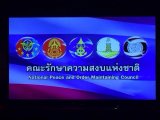
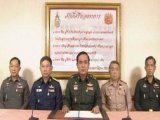

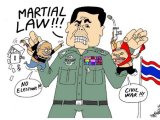
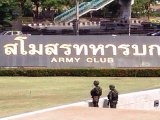
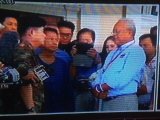
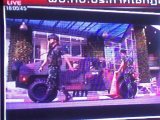
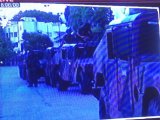
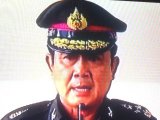



Just as Peau Thai has followed the constitution every step of the way, lmao!!!!
Posted by phuket madness on May 21, 2014 12:02